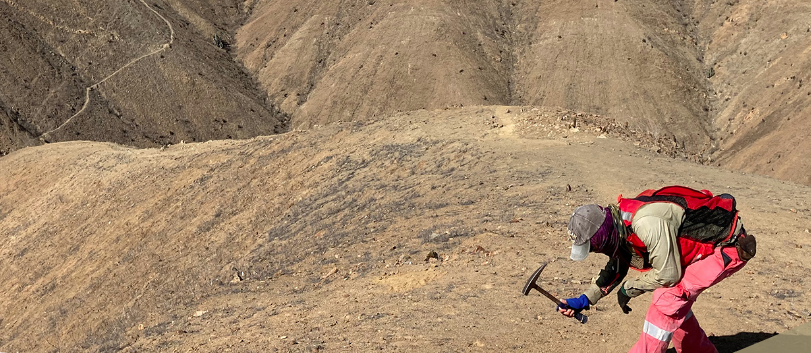
To earn an initial 70% interest, Barrick must pay $2.32 million in cash to the underlying vendor and $750,000 in cash to Latin Metals. It must also spend $5 million on exploration and prepare a preliminary economic assessment.
To earn an additional 15% for a total of 85%, Barrick must pay another $425,000 and “sole fund all costs” to deliver a prefeasibility study.
If Barrick completes the initial 70% option, the two companies will form a joint-venture (Barrick with 70% and Latin Metals 30%). If Barrick completes the second option, it will become an 85%-15% joint venture project, Latin Metals said.
Keith Henderson, CEO of Latin Metals, said Barrick would be a good partner that can bring “considerable technical and financial capability” to the project. He also noted that if both options are exercised, Barrick’s total investment would amount to about $8.5 million, “which will help to limit dilution to Latin Metals’ shareholders.”
Highlights from five rock samples taken from two mineralized zones about 6 km apart on the 5,000-hectare La Flora property included 14.88 grams gold per tonne and 55.8 grams silver per tonne in one sample and 3.68 grams gold per tonne and 8.7 grams silver per tonne from another.
Five rock samples taken from the 8,000-hectare Cerra Bayo property in 2020 returned grades of between 0.08 gram and 1.55 grams gold per tonne and between 5.1 grams and 100 grams silver per tonne. The 5,500-hectare Cerro Bayo Sur is contiguous and to the south of the Cerro Bayo project.
McEwen Mining (TSX: MUX; NYSE: MUX) and Hochschild Mining’s (LSE: HOC) San Jose mine and Newmont Mining’s (TSX: NGT; NYSE: NEM) Cerro Negro mine are about 50 km north of the properties. The San Jose and Cerro Negro mines produced 64,900 oz. and 270,000 oz. gold in 2020.
Over the last year the company has traded in the range of C10¢ and C24¢. It has 48.07 million common shares outstanding for a market cap of C$6.97 million ($5.5m).
(This article first appeared in The Northern Miner)




